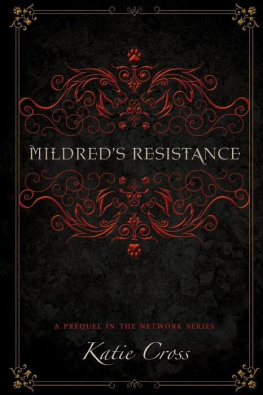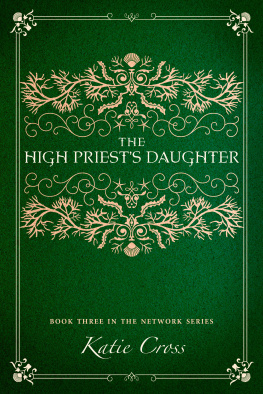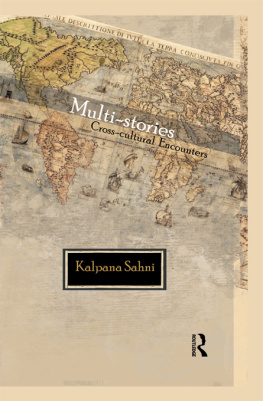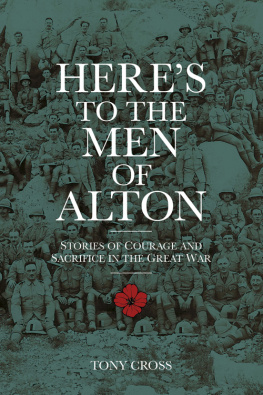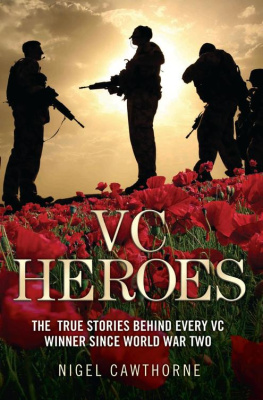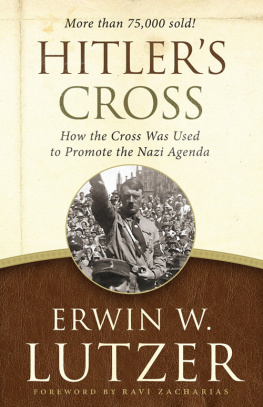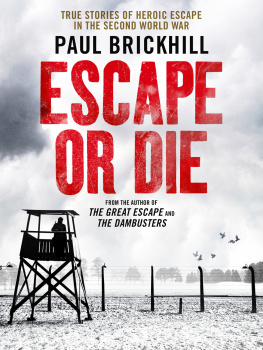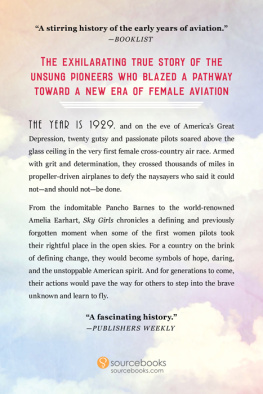TRUE
STORIES OF
WORLD WAR II
Edited by Robin Cross
First published by Michael OMara Books Limited in 1994
Copyright Robin Cross 1994, 1995
This edition published in 2021 by Lume Books
30 Great Guildford Street,
Borough, SE1 0HS
The right of Robin Cross to be identified as the author of this work has been asserted by them in accordance with the Copyright, Design and Patents Act, 1988.
All rights reserved. No part of this publication may be reproduced, stored in a retrieval system, or transmitted in photocopying, recording or otherwise, without the prior permission of the copyright owner.
Table of Contents
INTRODUCTION
The stories gathered here may read like high adventure, but to those who experienced battle it was both frightening and bewildering. What therefore is it like to be in the front line of battle? What is it like to engage in hand-to-hand fighting, to suffer bombardment, to test ones own courage at the sharp end where battles are won and lost? In World War II, mighty political and technical forces were harnessed but, at the end of the day, defeat was suffered and victory secured by the soldiers on the ground.
These eyewitness accounts bear testimony to the many faces of soldiering in the greatest conflict in human history. The reality of war with its strange combination of tedium, tension and terror is vividly evoked from sniping duels in the ruins of Stalingrad to the bitter battles fought for tiny islands in the Pacific Ocean, and the clash of armour in Normandy.
For some the war was a great adventure. For the migr Vladimir Peniakoff it meant a chance to form his own private army and wage personal war against the Third Reich. Popski, as Peniakoff was affectionately known, was an obvious hero but many amazing exploits were undertaken by men (and women) who never thought of themselves as heroes and who would have hated to be so described.
There are, indeed, many examples of heroism in these pages, but they also show the other faces of war: muddle and confusion; the struggle to survive in inhuman conditions; the waste of young lives and the strange lottery which decided who lived and who died.
This anthology covers the major theatres of the war on land from a soldiers-eye view: Bill Maudlins description of how his beloved infantrymen scratched home comforts from the wreckage as they fought their way up the Italian peninsula and Ken Tout bouncing his tank through the killing grounds of the Normandy bocage.
These are their stories which speak with an immediacy that bridges the gap of half a century between us and those titanic events. From generals to GIs, these are the true voices of men at war.
DUNKIRK TO WAKE ISLAND
World War II, the effects of which are still working themselves out in the mid-1990s, began on 1 September 1939, when Germany invaded Poland. Two days later Britain and France declared war on Germany. Poland fell in six weeks, and was partitioned between Germany and the Soviet Union. The following eight months saw an uneasy lull on the Western Front known as the Phoney War, which came to an abrupt end in April 1940 when Germany invaded Denmark and Norway. On 10 May Hitler unleashed an offensive in the West which bundled the British Expeditionary Force (BEF) out of France. Bombardier J.E. Bowman was serving in the 22nd Field Regiment with the British 4th Infantry Division when the storm broke and the retreat began.
By the 22nd the defence of the River Escaut had to be discontinued. Amiens, seventy miles to the south had fallen and the German tanks were at Boulogne, threatening the Channel ports. The effort to outflank us from the north went on relentlessly, with more concentrated attacks on the Belgians.
The BEF was placed on half rations, but it did not seem to make much difference. It wasnt all that unusual to see a squeaking piglet or two being hoisted into the cooks wagon. The cooks were admirable providers, assiduous for our well-being, and worked better under pressure.
There was hostile shelling at Avelghem and Escanaffles and once more we put down fire on the bridge. Hostile air-burst ranging is reported for the first time, possibly, probably, by 88mm guns.
At about three oclock in the afternoon the main German attack had developed and the 6th Black Watch of 12 Infantry Brigade had been pushed back on Castor Bridge. Two of the companies had to fight their way out.
We manhandled the Gun into a private garden, up the narrow drive, over the tiny lawn at the back and forward into a flower-bed with the summer flowers just forming. There was no sign of life. The occupants had either fled or were hiding. If they were at home they got a big shock when the first round went off, for the blast cracked a few windows. One bright, new, yellow shell followed another, rammed into the rifling and then up and away over the garden fence. The rest of the Troop were belting away in other gardens up the road and the air was filled with the sound of rotating projectiles, whirring away in their trajectories.
We pulled out, very hastily, just as it was getting dark. It was very lively, there were shell-bursts quite near and the small arms were rattling away too close for my liking. We sped away after the others, the fourth gun in the Troop, so it was harder for us to keep up and particularly difficult to catch up. We took a wrong turning. In a narrow road at the bottom of a hill with steep banks on either side we ran into the Black Watch who were withdrawing and dragging their wounded with them. They were slipping and sliding down the steep slope. I was half out of the tractor, about to give the order to unlimber in order to turn round, when Driver Burbanks, shouting for me to stay, did an impossible about turn, mounting a yard up each bank as he did so and saving us a valuable two or three minutes. Again, it was little short of a miracle that we found the right road and joined the Troop, for we had gone a few miles out of our way.
By 02.30 hrs on the 23rd the whole Division was across the Courtrai Canal. The infantry had marched another twenty-three miles. We were now north-west of Roncq in support of 12 Infantry Brigade, on a defence line erected during the winter by the BEF. I am as certain as I can be that no gun positions, previously prepared by us, were ever occupied by our Battery. On this day there was no firing. The enemy were busy catching up with us. In the afternoon of the 24th they arrived and shelled Lauwe and Haluin. Our own ammunition was now restricted.
This was the day when news finally got to us that we were in a very tight spot indeed and that we were edging our way to the coast. It was a good thing that we had no crystal ball in which to peer; and that the gauntlet that we would have to run when we got to the sea was hidden from us.
The day before, leading units of 1st Panzer had passed Calais. Now they were only fifteen miles from Dunkirk. The British assessment was that Dunkirk would fall the next day, the 25th. Then a curious decision was made, the reasons for which have been speculated upon and discussed ever since. Herr Hitler decreed that the determined columns threatening Dunkirk should halt. Everyone sat back in amazement, wondering what the next trick was to be pulled out of the bag. None came. We, unknowing, had been reprieved for a vital few more days. It was still far from a happy situation, however, for Dunkirk was overlooked by enemy guns from vantage points on high ground.
To the north the German infantry and guns were concentrating on the Belgians whose morale was deteriorating steadily. It would appear that they had given up.
From now on the adrenalin flowed faster. An atmosphere charged with anxiety and foreboding had crept in. Our primitive instincts of stealth and cunning became more pronounced in our struggle for survival.




